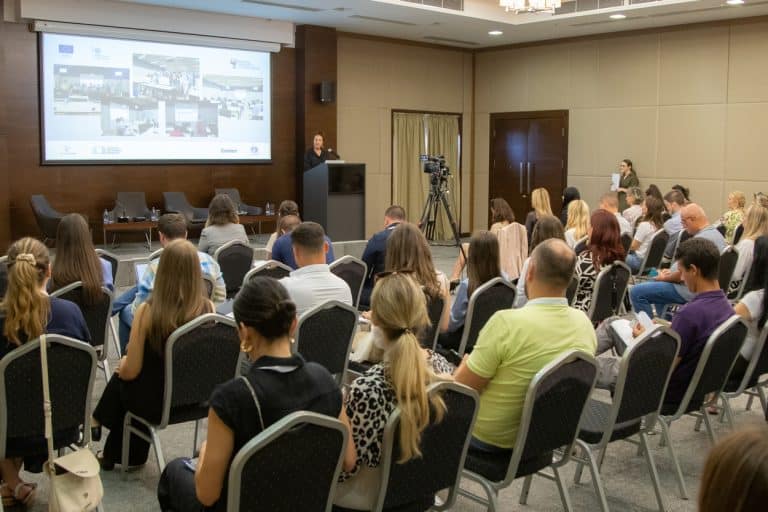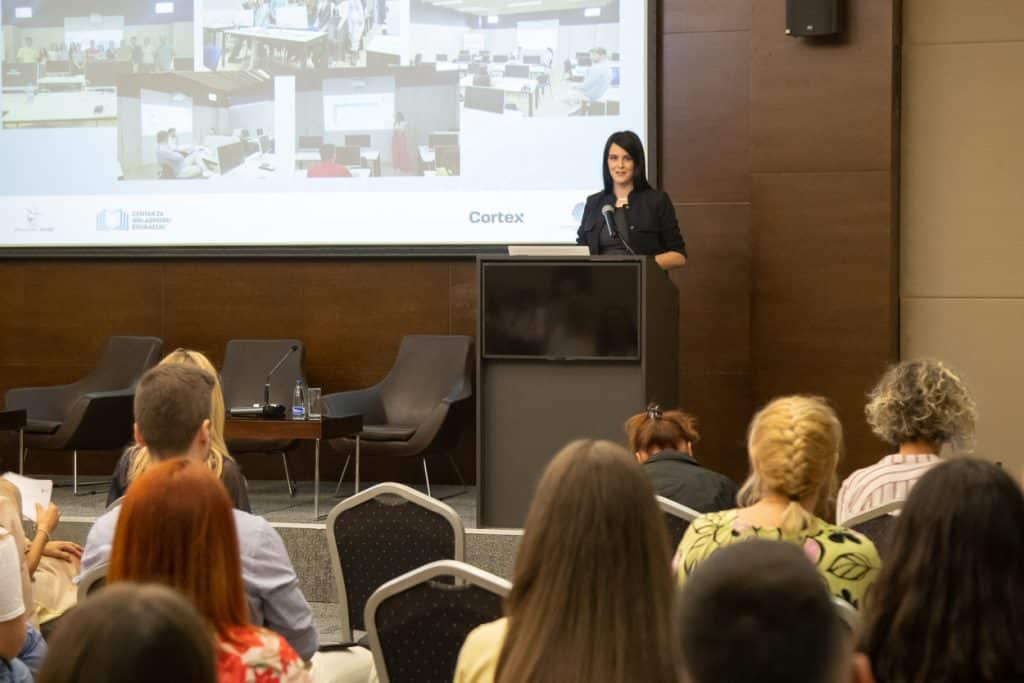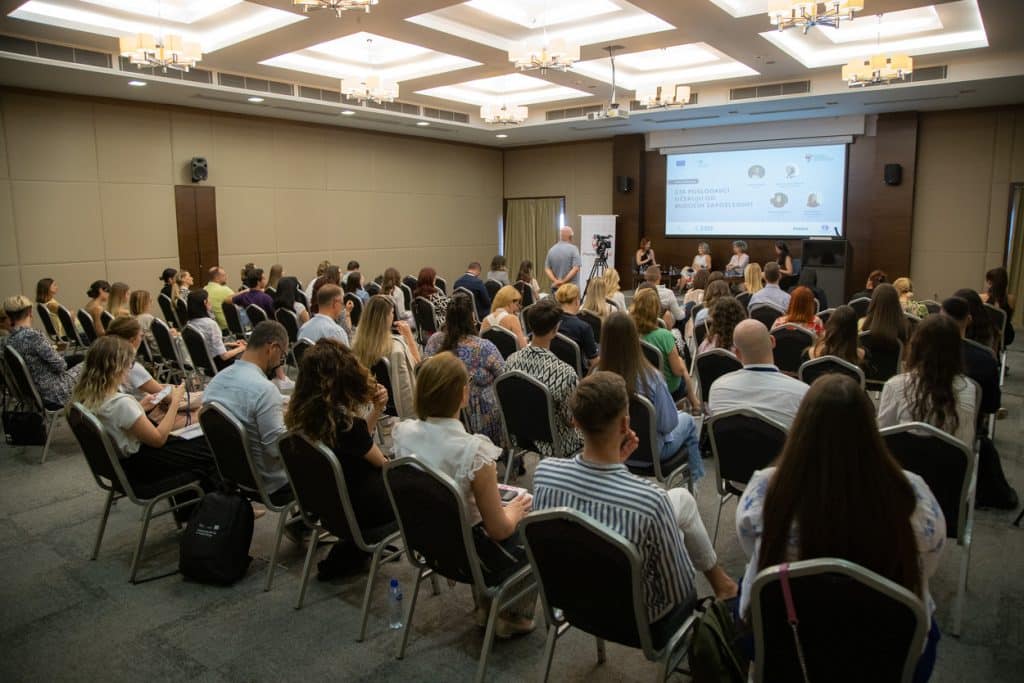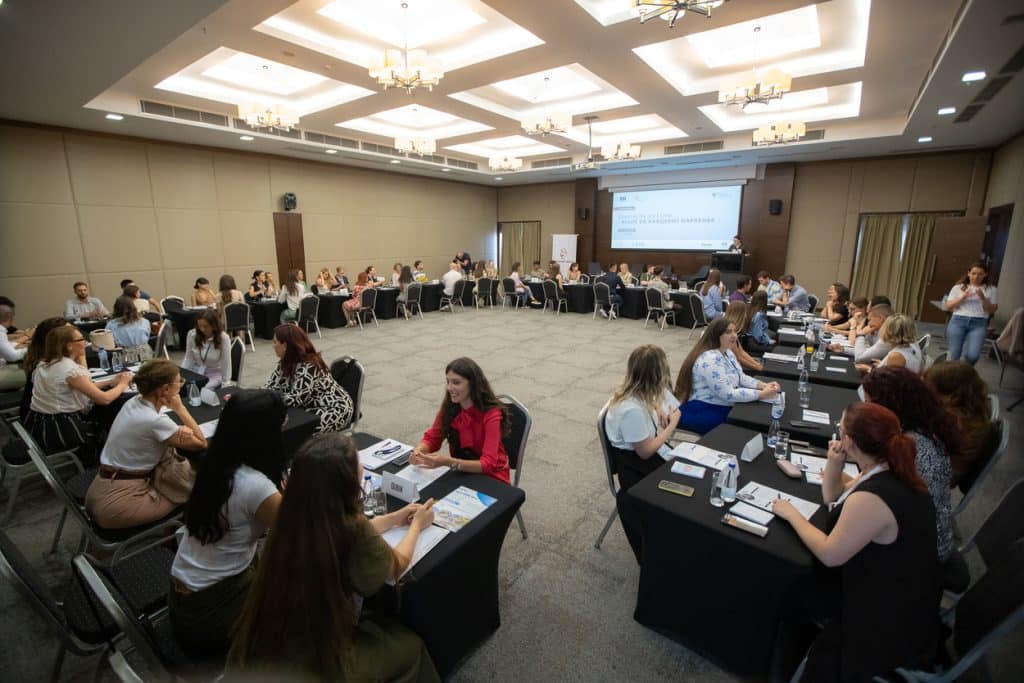‘Digital Skills – Key to Career Advancement’
The job fair titled ‘Digital Skills – Key to Career Advancement’ was organized on July 11th as the culminating event of the one-stop-shop program aimed at enhancing youth employability. The event was organized by ICT Cortex – the cluster for information technology, innovation, design, education, and technological development in Montenegro, along with the Technical Research Laboratory TechLab. Over the past 6 months, these organizations have conducted courses on digital skills as part of the aforementioned program.
The one-stop-shop program is part of the project “Inclusive Progress towards EU Integration – Empowering Civil Society to Effectively Contribute to Inclusive Development of Local Communities,” implemented in Montenegro by Forum MNE in collaboration with the Center for Youth Education, with financial support from the European Union and co-financing from the Ministry of Public Administration of Montenegro.

Over the past 6 months, 45 young people from the central region of Montenegro participated in a digital skills course. This program included training in digital marketing, project management, and product management. Concurrently with the digital skills program, these young individuals also received training in soft skills and career counseling. The program aimed to educate and empower youth, facilitating their faster and easier integration into the labor market.
The event brought together participants of the one-stop-shop training program and nearly 50 employers from civil, business, and IT sectors. It marked the culmination of the educational program and the organizers’ efforts to showcase the skills and knowledge acquired by young innovative individuals. Participants had the opportunity to present themselves to employers through one-on-one conversations, receive advice for further career development, gain insights into labor market needs, and potentially secure employment opportunities.

The event was opened by Jelena Novićević, Executive Director of FORUM MNE, who emphasized the significance of the one-stop-shop program for both young people and employers. She highlighted that the organization has been working on improving and strengthening the program since piloting the model five years ago. This includes capacity-building through small grants programs, creating a support system for NEET youth in Montenegro. Jelena shared results from previous projects, which involved over 150 young people, 8 employability courses, and engaged over 250 stakeholders. She also announced an upcoming call for the 4th generation of program participants, which will focus on the northern region of Montenegro.

The attendees were also greeted by Brigitte Kuhar, representative of the European Union Delegation to Montenegro, who emphasized the importance of the state’s investment in quality education that aligns with the needs of the labor market. She highlighted the readiness of employers to provide young people with appropriate opportunities for work and professional development.
“It will require efforts from everyone to offer young people in Montenegro a better life and prospects, and to enable the economy to develop its potential with the help of qualified workforce. The European Union is here to support you in this,” concluded Kuhar.
Following the opening remarks, a panel discussion titled “What Employers Expect from Future Employees” took place, featuring guest speakers who were representatives from members of the ICT Cortex cluster.

Vesna Vojinović, HR Manager at Tungsten Automation, praised young individuals who recognize the need for additional and continuous skill development right from the start of their careers, alongside formal education. She highlighted that by taking this proactive approach, they demonstrate excellent initiative, which future employers will surely value. She encouraged them to take away the message from the panel to always nurture their authenticity and stay true to themselves during job interviews, being aware of their values, qualities, and areas for improvement. She expressed confidence that they will continue to successfully develop professionally in ways that fulfill their potential and make them satisfied individuals.
Violeta Đorđević, HR Manager at Logate, emphasized the importance of feedback for young people at the beginning of their careers to facilitate rapid progress along their professional paths. She also underscored that employers have a responsibility to foster a business culture that includes providing feedback in an appropriate manner.
Aleksandra Bošković, CEO of Bild company, emphasized that the job market is constantly evolving, and that training in digital skills is crucial to prepare young people for entering the workforce. She highlighted the importance of stepping out of one’s comfort zone, continuous learning, tailoring resumes to meet employer needs, networking, and embracing opportunities for further development and training, as these actions drastically increase their chances of employment.
After the panel discussion, there were one-on-one sessions with employers from civil, business, and IT sectors, where young individuals showcased their acquired knowledge and skills from the educational program and received advice for their further career development.
